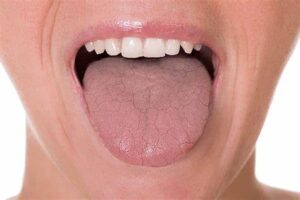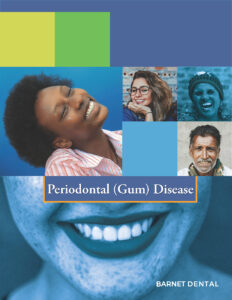What is it?
Dry mouth, also known as xerostomia, is a condition characterized by a decrease in saliva production or a change in the composition of saliva. Saliva plays a crucial role in maintaining oral health by lubricating the mouth, neutralizing acids, washing away food particles, and aiding in digestion and speech. Reduced saliva flow can lead to discomfort, difficulty eating and speaking, and an increased risk of dental problems such as tooth decay and gum disease.
Here are some key points about dry mouth:
- Causes:
- Medications: Dry mouth is a common side effect of many prescription and over-the-counter medications, including antihistamines, decongestants, antidepressants, antipsychotics, and certain blood pressure medications.
- Medical conditions: Systemic diseases such as Sjögren’s syndrome, diabetes, HIV/AIDS, Parkinson’s disease, and autoimmune disorders can affect salivary gland function and lead to dry mouth.
- Radiation therapy: Treatment for head and neck cancer involving radiation to the head and neck area can damage the salivary glands and reduce saliva production.
- Chemotherapy: Some chemotherapy drugs can cause temporary or permanent damage to the salivary glands, leading to dry mouth.
- Aging: Salivary gland function tends to decrease with age, leading to a higher prevalence of dry mouth in older adults.
- Mouth breathing: Breathing through the mouth, particularly during sleep, can dry out the oral tissues and contribute to dry mouth symptoms.
- Smoking or tobacco use: Tobacco use can decrease saliva production and exacerbate dry mouth symptoms.
- Symptoms:
- Dry, sticky feeling in the mouth or throat.
- Difficulty chewing, swallowing, or speaking.
- Persistent thirst.
- Sore throat or hoarseness.
- Dry or cracked lips.
- Bad breath (halitosis).
- Changes in taste or difficulty tasting food.
- Increased risk of oral infections, tooth decay, or gum disease.
- Difficulty wearing dentures or oral appliances due to lack of saliva lubrication.
- Complications:
- Oral health problems: Reduced saliva flow can lead to an increased risk of cavities, gum disease, oral infections (such as thrush), and oral sores or ulcers.
- Difficulty eating and speaking: Dry mouth can make it challenging to chew and swallow food, leading to nutritional deficiencies or weight loss. It can also affect speech clarity and articulation.
- Decreased quality of life: Chronic dry mouth can impact oral comfort, social interactions, and overall well-being, leading to decreased quality of life and psychological distress.
- Diagnosis:
- Diagnosis of dry mouth is based on patient symptoms, medical history, and clinical evaluation by a healthcare professional.
- Your healthcare provider may inquire about medication use, medical conditions, lifestyle factors, and oral hygiene habits that could contribute to dry mouth.
- Additional tests, such as salivary flow rate measurement or blood tests, may be conducted to assess salivary gland function and identify underlying causes of dry mouth.
- Treatment:
- Treatment of dry mouth aims to alleviate symptoms, stimulate saliva production, and prevent complications. Treatment options may include:
- Hydration: Drinking plenty of water or sugar-free fluids throughout the day can help keep the mouth moist and relieve dry mouth symptoms.
- Saliva substitutes: Over-the-counter or prescription saliva substitutes, gels, sprays, or mouth rinses can provide temporary relief by lubricating the mouth and mimicking the properties of natural saliva.
- Salivary stimulants: Chewing sugar-free gum or sucking on sugar-free candies can stimulate saliva production and increase saliva flow.
- Medication adjustment: Your healthcare provider may adjust or change medications that contribute to dry mouth symptoms, if possible.
- Oral hygiene: Maintaining good oral hygiene practices, including regular brushing, flossing, and dental check-ups, can help prevent oral health problems associated with dry mouth.
- Humidification: Using a humidifier in the bedroom or living space can add moisture to the air and help reduce dry mouth symptoms, particularly during sleep.
- Prevention:
- To prevent or minimize dry mouth symptoms, it’s important to:
- Stay hydrated by drinking plenty of water throughout the day.
- Avoid or limit alcohol, caffeine, and tobacco, which can contribute to dry mouth.
- Use a humidifier in dry indoor environments to add moisture to the air.
- Practice good oral hygiene habits, including regular brushing, flossing, and dental check-ups.
- Chew sugar-free gum or suck on sugar-free candies to stimulate saliva flow.
- Avoid mouthwashes containing alcohol, as they can exacerbate dry mouth symptoms.
In summary, dry mouth is a common condition characterized by reduced saliva production or changes in saliva composition. It can result from various factors, including medications, medical conditions, radiation therapy, and aging. Dry mouth can lead to discomfort, difficulty eating and speaking, and an increased risk of oral health problems. Treatment options for dry mouth aim to alleviate symptoms, stimulate saliva production, and prevent complications. If you experience persistent or severe dry mouth symptoms, it’s important to consult a healthcare professional for evaluation and appropriate management.

